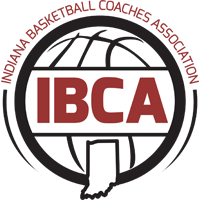Mentoring Program for Young and Experienced Coaches
(Compiled/Written by Steve Witty, IBCA Executive Director)
Click on the item to Read and Print Want to contact a Mentor Coach? Click Here
See Below for Resources
-
Who can I reach out to?IBCA Mentoring ProgramThe IBCA is continuing its Mentoring Program this season. The program was started in 2019-20, and the effort was upgraded in 2020-21. IBCA president Craig Teagle of Huntington North and IBCA president-elect Michael Adams of Evansville Reitz are coordinating this program.Posted in the "About" section of the IBCA web site is a document titled, “You Got the Job, So What Happens Next? – Program Organization.” This information was part of a presentation that IBCA executive director Steve Witty and IBCA assistant director Renee Turpa gave for the Women’s Basketball Coaches Association during the NCAA Women’s Final Four in Indianapolis a few years ago. The guidelines in this document will be helpful for any coach, experienced or inexperienced, to be organized and prepared for the challenges of being a head basketball coach.If you can’t find what you are looking for in the mentoring document and prefer to talk to a coach for ideas and advice, please contact one of the following coaches who have agreed to be Mentor Coaches. Any or all will share ideas to help you become a better coach.
Mentor Coaches' Name School Boys or Girls District Email Cell Number Beasley, Marty Dekalb B 1 mbeasley@dekalbcentral.net 260-705-1285 Benedict, Chris Whitko B 1 chris.benedict@whitko.org 260-609-6062 Bodey, John Central Noble B 1 jbodey@carlex.com or jcb1414@hotmail.com 260-226-1833 Hackett, Mike Munster B 1 mdhackett@munster.k12.in.us 219-588-3091 Radeker, Scott Northridge B 1 radekers@mcsin-k12.org 765-404-9384 Shappell, Carrie Leo G 1 cshappell@eacs.k12.in.us 260-437-9323 Stangel, Brad Hanover Central B 1 bstangel@hanover.k12.in.us 608-843-1566 Stone, Matt Wabash G 1 stonem@apaches.k12.in.us 260-571-3328 Swan, Clint Crown Point B 1 cswan@cps.k12.in.us 219-669-3339 Thornton, Eric Norwell G 1 eric.thornton@nwcs.k12.in.us 260-438-6472 Ulrich, Kristi Penn G 1 kulrich@phm.k12.in.us 574-993-3370 Wolfe, Aaron Northwood B 1 awolfe@wanee.org 574-265-5270 Adams, Tim Park Tudor B 2 tadams@parktudor.org 317-413-1008 Allison, Greg Eastbrook B 2 gallison@eastbrook.k12.in.us 574-551-0275 Benge, Stan Ben Stavis G 2 stanbenge@att.net 317-750-4395 Bomholt, Jerry Jay County B 2 jbomholt@jayschools.k12.in.us 812-493-5629 Gish, jim Northwestern B 2 james.gish@nwsc.k12.in.us 765-432-2955 Groves, Aaron Cowan B 2 agroves@cowan.k12.in.us 765-744-8482 Hawkins, Cliff Tipton B 2 chawkins@tcsc.k12.in.us 260-437-4582 Lynch, Steve Brownsburg B 2 slynch@brownsburg.k12.in.us 317-645-5701 May, Kaley Danville G 2 kmay@danville.k12.in.us 317-341-4953 McColley, Rush Harrison G 2 remccolley@tsc.k12.in.us 765-376-3534 McCollough, Dave Frankfort B 2 mccollough@frankfort.k12.in.us 317-697-3428 Osborn, Ryan Carmel B 2 rosborn@ccs.k12.in.us 317-407-9391 Votaw, Lauren Fishers G 2 lvotaw@hse.k12.in.us 317-730-3828 Weaver, Andy Plainfield B 2 aweaver@plainfield.k12.in.us 317-775-7692 Chad Wetz Seeger G 2 chad.wetz@gmail.com 765-212-5020 Benter, David Brownstown Central B 3 dbenter@btownccs.k12.in.us 812-525-7678 Bradburn, Joe Greenwood B 3 jbradburn@gws.k12.in.us 765-623-4609 Brown, Kerry Connersville B 3 kerryb@fayette.k12.in.us 765-561-0135 Carmichael, Amanda Clarksville G 3 acarmichael@clarksvilleschools.org 812-786-6068 Chitty, Brent Columbus East B 3 coachchit@yahoo.com 812-459-3757 Cutter, Brad Lawrenceburg B 3 bcutter@lburg.k12.in.us 812-584-9049 Garrett, Aaron Batesville B 3 agarrett@batesville.k12.in.us 812-528-6683 Gibson, Brian Castle B 3 bgibson@warrick.k12.in.us 812-455-9802 Goebel, John Jasper B 3 jgoebel@gjcs.k12.in.us 812-774-2811 Hickey, Jerry Salem G 3 jhickey@salemschools.us 812-844-6217 Klein, Rodney Cambridge City Lincoln B 3 rodney.klein3413@icloud.com 765-914-3413 Marshall, Rick Vincennes Rivet G 3 rick.marshall.74@gmail.com 812-890-0833 Rohrer, Mark Gibson Southern B 3 mark.rohrer@sgibson.k12.in.us 812-486-6611 Shannon, Jim New Albany B 3 jshannon@nafcs.org 502-939-3231 Thompson, Josh Barr-Reeve B 3 jthompson@barr.k12.in.us 812-653-5250 Wadsworth, Matt Edgewood B 3 mwadsworth@rbbschools.net 317-402-2933 Wetz, Chad Seeger G 3 chadwetz@gmail.com 765-212-5020 The IBCA thanks these Mentor Coaches for being available to be a part of the mentoring program to help fellow coaches. As needed, you also may contact Coach Teagle (765-499-1340, cteagle@hccsc.k12.in.us) or Coach Adams (812-449-0236, michael.adams@evsck12.com).
Program Organization (Purple? Because it is Coach Witty’s favorite color!)
I. Introduction (Complete Outline of Material)
II. Meet players, parents and become visible in the community. Identify power brokers, key faculty, administrators and community members. If new to the community have a “meet the coach” night.
“ If you want to be successful and respected but not necessarily liked or loved as a coach”.
III. Hire Assistants
Traits of a good assistant coach
Characteristic and qualities of assistant coaches
Expectations of varsity assistant
Assistant coach game responsibilities
IV. Promote and establish a basketball philosophy. Develop a philosophy and document it.
“Six key characteristics of a championship program”
“Things I wish an older experienced coach would have told me when I was young”
Six coaching sins and how to avoid them
“Playing the Game the Way it is Supposed to be Played”
V. Identify style of play
What are your teams known for? What is the foundation of your basketball program? Do you play up-tempo, controlled, press, half- court defense, zone or man to man, motion or set plays, many plays or a few, positionless spread offense etc.…?
When people hear your team’s name mentioned, what style of play do they think of?
VI. Yearly calendar-
“Basketball Program Organization”
VII. Preseason Staff Meeting
VIII. Weight training
“Weight Training and the Practice Schedule”
IX. Fall conditioning
X. Team selection/team building
“Gentling the cruelest cut of all”
Three Kinds of Players
“Players Coaches Love”
“Reasons Players Reach Their Potential”
Important Items to read and consider: Many Smiles in the information below!
“Do You Want to Be Cool or a True Champion”
“Basketball Terminology”
“Core Values of a Quality Basketball Program”
“Are You a Good Team Player?”
Intimidation Not Needed to Motivate Kids
“Considerations Involving Team Discipline”
“4 Methods to Improve Athlete/Coach Communication”
Traits and qualities of a team leader
“Team Performance Test” utilize in January to see if players and coaches are on the same page
XI. Basketball parents
Preseason Parents’s meeting outline
Dealing with the parent problem in the preseason
Handling Parents and Playing Time
“Do your parents work for you or against you?”
“A letter to a parent from a coach”
Handling the parent problem. Tips to deal with parents
“Strategies to handle the Ball-istic parent
XII. Individual and team goals
“Two Pre-requisites for Effective Goal Setting”
“Goal Setting with Direction and Commitment”
Goal setting,” Individual and Team goals”
XIII. Player Ten Commitments. In all successful programs there is discipline and attention to details. Eliminate rules and replace them with expectations (sematics)
“Player Ten Commitments”
“Wooden/ “Pyramid of Success”
“It’s the Little Things That Make the Big Things Happen”
XIV. Organize your season schedule
“Dividing the Game Schedule into Thirds”
“Typical In-season Weekly Game Plan”
“Organizational Tips for Coaches”
XV. Coach/official relationship:
Communicating with Officials
Coach-Official relationship: One officials perspective
Working with game officials- Part I and Part II
XVI. Practice organization. In all skills you teach, repetition is the key. Teaching sequence requires: instruction, demonstration, correction, repetition. Teach to meet the three learning style of your players. Some players learn better by what they hear, some by what they see, some by what they do.
Practice plan form
Practice organization
Practice principles to consider Organize your practice plan
Organize your practice time
Practice Tips – Krzyzewski
Practice observation/assessment
XVII. First game checklist
“First Game Check List-Ed Schilling
XVIII. Game management considerations
“momentum Getters/Momentum Killers”
“Time out/What happens next?”
Communication during time-outs
What to say at half-time
“Bench Organization”
XX. Thoughts on leadership/Coaches legal duties
Five essentials for leadership in coaching
“Difference Between Managing and Leading”
“Nine Legal Duties of a Coach”
Facts vs myths regarding liability for sports injuries
XXI. Post season coaches evaluation and program evaluation.
Thoughts on Evaluation Process
Coaches self- evaluation check list
XXII. Thoughts for the Day, a dose of positive each day
XXIII. Fun Cartoons
Cartoons/This is supposed to be Fun
XXIV. Testimonials
Successful program testimonials
Ben Davis won title with teamwork not stars
Best Hoops Team
Ben Davis at the Buzzer
Final Thoughts and suggestions and Conclusions


